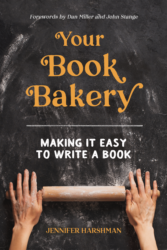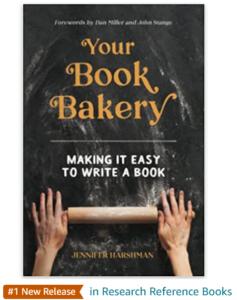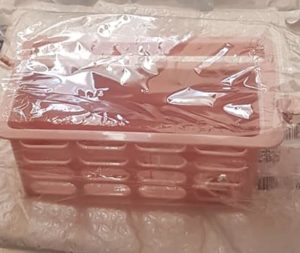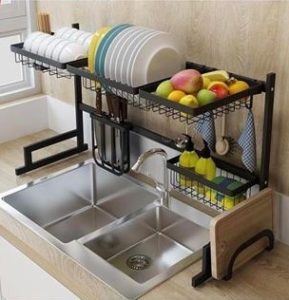Rest and relaxation help productivity, and that’s just one reason to be sure you have enough of them in your life.
The need to create is natural as moss on a rock. It’s often stifled and squashed in kids and adults alike, however. Sometimes just having the freedom to play around is enough to bring it out again. That’s how The Book Baker persona came to be.
Rest and relaxation for stress relief

Many a wife has shooed her husband out to the workshop to go tinker, or back to his computer to write something when he starts getting testy, because she senses that the pressure to create is building inside him. More than one husband has told his wife flat-out, “Go create something. You’re driving me crazy.” The Creative does, and feels better; the dynamic between them changes, and then they have some fun together. Rest and relaxation help productivity in the long run.
Who’s getting the stress relief here? Probably both spouses. Creating is a great stress-relief technique, among other things. When we don’t do something about that need, we end up more tightly-wound than a hummingbird in plastic wrap.
My husband was always more subtle about shooing me away from my desk than some people are to their spouses, but I know what he means. “How long has it been since you painted or wrote something? And I don’t mean for work, either.” I have to admit it’s been a while, because I just don’t have (take) a lot of time for it.
Too busy to relax
I have a lot on my to-do list, and it seems it never gets completely emptied. I edit millions of words a year. I write content for blogs and websites, and I coach some writers. I cook and clean, and I homeschool children.
I’m busy, I tell him. I don’t have time to do something “just for fun,” or “just for me.” The left-brain part of me says there’s work to be done, and the things that make money (or have good potential to) are the important things.
The part of my brain that holds my parent tapes seems to be on eternal playback, and they say, “Get your work done. All of it. Don’t stop for one minute until it’s done! Push yourself until you collapse [with chronic illnesses, I collapse often enough]. then you get to sleep, but only for four hours, because you have a farm to run here, and you have a family to cook and clean for, and you have school in the morning.” Yeah, my parental figures were relentless jerks to me. But hey, I developed a great work ethic! I also developed adrenal burnout, but that’s a story for another day.
Rest and relaxation help productivity
That part of my brain has been tamed quite a bit over the years, but it’s still there. It has to be convinced that doing something creative just for fun or relaxation, something which doesn’t appear to be productive actually is. Rest and rejuvenation are needed for productivity.
A friend game me the nickname “The Jenergizer Bunny” because I keep pushing myself as long as I can go (I sit in a chair and move my fingers all day—not hard physically, but with chronic illnesses, it’s about all I can do), but eventually even I have to stop and recharge. I need to nap most days and to switch gears from time to time. Everyone needs to switch gears and recharge somehow.
Art for fun
So when my husband asked, “How long has it been since you’ve painted or written something, and I don’t mean for work,” I’d often stop what I’m doing and go do something else, like play with paint on a canvas or paper—I don’t call it “painting.” That puts too much pressure on me to make it look good, or make something that’s real, or whatever—something that justifies the expense of the art supplies (as if helping me feel better and relax isn’t enough justification). I just called it rest and relaxation.
I’m just playing with paint, just like when someone is blocked with their writing, they might say, “I’m just putting some ideas down here, not really writing, it’s okay…” Or instead of with paint, I crochet or sew, or play around with “non-work” writing: maybe a few rhyming lines or a scene that’s not part of anything else… Before I know it, I’m writing, and that’s good, because that’s what writers do. We write. Your turn!













